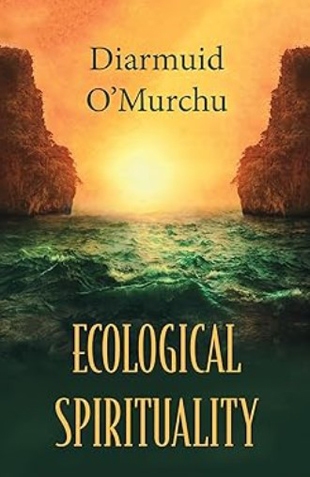Diarmuid O’Murchu has long been a part of our Living Spiritual Teachers Project. He’s a member of the Roman Catholic Sacred Heart Missionary Order, a social psychologist, workshop leader and group facilitator for adult faith development, and author of many books including two previous winners of the Spirituality & Practice annual book awards.
O’Murchu excels in articulating the spiritual practices of hope, connections, meaning, and transformation.
In this new book, he challenges common religious understandings of human holiness that prioritize the decisions of the individual and human detachment from what is physical. This has bred popular dualisms that still endure in many quarters, including sacred vs. secular, spirit vs. matter, body vs. soul. Whether those old approaches ever made sense is debatable, but today and into the future they certainly do not, O’Murchu emphasizes.
Rather, “The enlarged worldview from modern Western sciences — particularly cosmology, quantum science, and evolutionary unfolding — required us to revisit the sense of oneness named by mystics down through the ages, enriching the potential of eco-spirituality as a world-transforming resource.”
O’Murchu traces the development of eco-spirituality’s themes and progress to many teachers before him, including Spinoza and his pantheism, anthropologists, process theologians, ecofeminists, and several practitioners of the Gaia Hypothesis including Mary Evelyn Tucker.
His approach is Christian-plus and often interspiritual. The insights of many spiritual traditions are brought to bear, and O’Murchu acknowledges frankly that “traditional religious resources can also be major barriers to the deeper and larger landscape that needs to be explored.” In fact, “Eco-spirituality is unashamedly secular, earthly, and materialistic 'for the sake of the world,' marking a radical departure from the former spirituality of seeking escape from this world.”
He also explains: “While mainline religions seek to get rid of pain, suffering, and death, eco-spirituality embraces all these elements and seeks their transformation through a process of befriending the paradox rather than seeking to eliminate the dark side of life.”
This book is full of detail, theological sources and nuance, and occasionally much-needed exhortation after the presentation of evidence. O’Murchu communicates well, despite the immense learnedness of his approach. Ecological Spirituality should be used in many university and graduate courses in theology, and with its pages of “critical issues for ongoing discernment” at the end of each chapter, it will also be used in some upper-level book group discussions.
There are many summaries we might provide of what O’Murchu accomplishes. This is one from a later chapter: “To protect the universal giftedness of creation, ecospirituality aspires toward a new quality of integration, incorporating people and planet alike, seeking to rediscover a relevant and liberating ethics for our age, and immersing ourselves ever more deeply in the inherited contemplative traditions of our rich past. Supported by such a rich integration, we can witness more fully and directly the 'inspirited' (inspired) earth, manifesting in creatively elegant ways the divine will for life as a foundational organicity that is insinuated into every embodied lifeform.”
